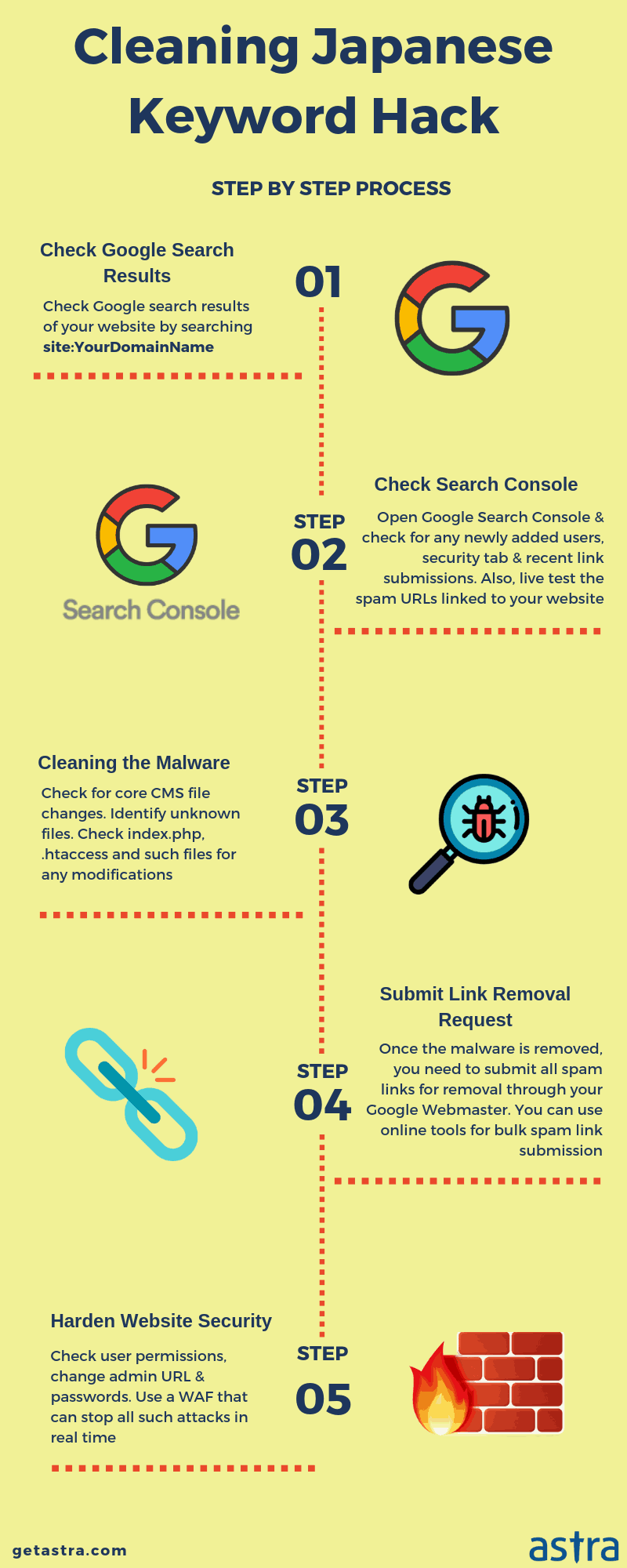Website hacking is a common issue that many website owners face, and it can be a nightmare for businesses that rely on their websites to generate revenue. Unfortunately, it’s not just the fact that your website has been hacked that can be problematic, but also the fact that hackers often use Japanese keywords to hide their activity. If your website has been hacked with Japanese keywords, it can result in a severe drop in traffic and a damaged reputation.
In this article, we will provide a comprehensive guide on what to do when your website gets hacked with Japanese keywords. We will cover the steps you can take to detect if your website has been hacked, explain why hackers use Japanese keywords, the potential consequences of having Japanese keywords on your website, and provide actionable steps that website owners can take to remove Japanese keywords from their website and recover their website’s ranking and reputation.
Why Do Hackers Use Japanese Keywords?
Hackers use Japanese keywords to hide their activity and make it harder for website owners to detect that their website has been hacked. It’s a common technique used by hackers because many website owners are unlikely to understand Japanese and therefore won’t notice anything unusual. Additionally, Japanese characters are not easily recognizable to the average person, making it difficult for people to find and report suspicious activity.
Common Japanese keywords used by hackers include:
• ポル ノ (porn o)
• セッ クス (se x)
• アダ ルト (adu lt)
• マリ ファナ (marij uana)
• カジ ノ (casin o)
• エス テ (estheti c)
These keywords are commonly used by hackers because they are related to topics that are often considered taboo, which makes them more likely to go unnoticed.
Detecting if your website has been hacked with Japanese keywords:
Detecting if your website has been hacked with Japanese keywords can be challenging, especially if you don’t understand the language. However, there are several steps you can take to determine if your website has been hacked:

Check your website’s traffic: If your website’s traffic suddenly drops, it could be a sign that your website has been hacked.
Use Google Search Console: Google Search Console is an excellent tool for monitoring your website’s security and ranking. It will provide you with a notification if Google detects any suspicious activity on your website.
Check your website’s source code: Look for any suspicious code in your website’s source code. If you find anything unusual, it’s a sign that your website has been hacked.
Use a website scanner: There are several website scanners available that can detect if your website has been hacked with Japanese keywords.
Consequences of having Japanese keywords on your website:
Having Japanese keywords on your website can have severe consequences, including:
Penalization by Google: Google penalizes websites that use spammy techniques to manipulate search engine rankings, including the use of Japanese keywords.
Drop in traffic: Having Japanese keywords on your website can result in a severe drop in traffic.
Loss of reputation: A hacked website with Japanese keywords can damage your website’s reputation, making it harder to attract and retain visitors.
Financial loss: If your website generates revenue, a drop in traffic can result in a financial loss.
Steps to remove Japanese keywords and recover your website’s ranking and reputation:
If you’ve determined that your website has been hacked with Japanese keywords, there are several steps you can take to remove them and recover your website’s ranking and reputation:

Back up your website: Before making any changes to your website, it’s essential to back up your website.
Remove the Japanese keywords: Remove any Japanese keywords from your website, including the meta tags, content, and source code.
Change your passwords: Change all of your website’s passwords, including your hosting and content management system (CMS) passwords.
Update your website: Update your website’s CMS and all of its plugins to the latest version. This will ensure that your website is protected against known vulnerabilities.
Install security plugins: Install security plugins that can protect your website against future attacks. Some popular security plugins include Wordfence, Sucuri, and iThemes Security.
Request a review from Google: If your website has been penalized by Google, you can request a review once you’ve removed the Japanese keywords and fixed any other security issues.
Monitor your website: Regularly monitor your website’s traffic and search engine rankings to ensure that it’s performing as expected.
Tips For Preventing Future Attacks:
Keep your CMS and plugins up-to-date: Hackers often target websites that are running outdated software.
Use strong passwords: Use unique, strong passwords for all of your website’s accounts.
Use two-factor authentication: Two-factor authentication adds an extra layer of security to your website by requiring a verification code in addition to a password.
Use a web application firewall (WAF): A WAF can protect your website against common web-based attacks.
Regularly back up your website: Regular backups can help you quickly recover your website in the event of a security breach.
Related: How To Save Your Website Being Inject From Virus/Malware Through Plugin
Conclusion:
Having your website hacked with Japanese keywords can be a frustrating experience. However, it’s important to act quickly to remove the keywords and secure your website to prevent future attacks. By following the steps outlined in this article and taking proactive measures to protect your website, you can ensure that your website remains secure and continues to rank well in search engine results.